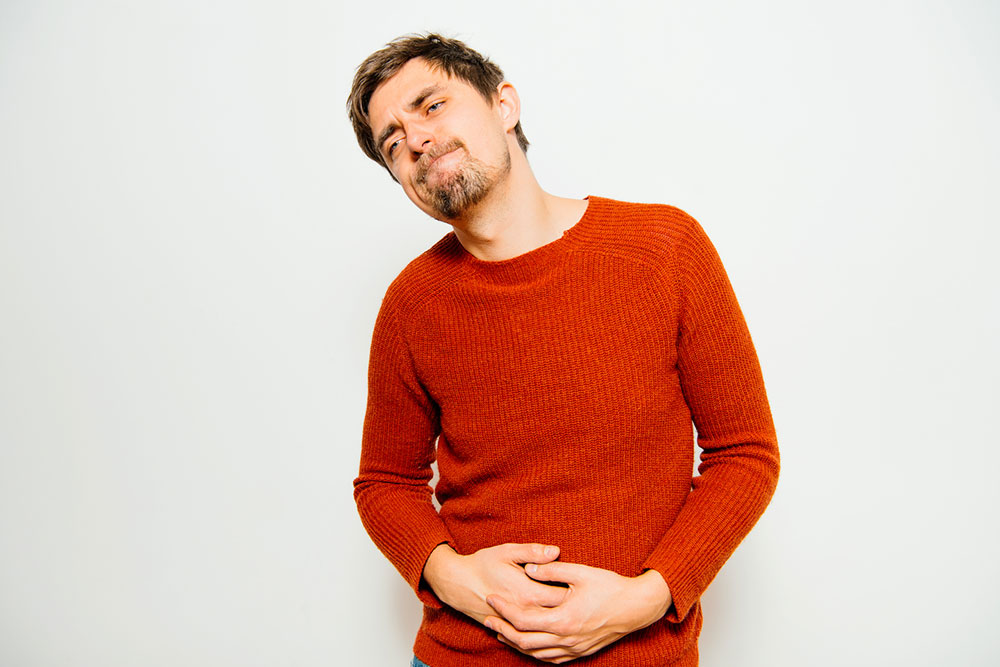
Crohn’s disease – Signs, causes, and remedies
Crohn’s disease is a bowel disorder that causes aggressive inflammation in a person’s GI tract, which is a digestive pipe that connects the stomach to the anus. The inflammation tends to spread into deeper layers of a person’s bowel. While there is no definitive cure for Crohn’s disease, care and treatment can help reduce the symptoms of this condition. Knowing specific details of this disorder can help people deal with it effectively. Here are some such details:
Crohn’s disease symptoms
Healthcare professionals detect Crohn’s disease in individuals on the basis of certain typical indicators:
Fever
Intestinal inflammation is closely related to fever and infections in individuals. Crohn’s disease tends to cause a host of infections in the digestive tract. Fever is usually a by-product of the prescription-based solutions provided by doctors to help reduce the symptoms of Crohn’s disease in individuals. Fever is often accompanied by night sweats and chills. These symptoms occur due to inflammation, causing the body temperature to rise and fall during various parts of the day.
Fatigue
Crohn’s disease is characterized by a progressive reduction of appetite in people. This means that individuals with this disorder often do not receive as many nutrients or oxygen as needed for daily functioning, development, and sustenance. So, naturally, the reduced intake of nutrients causes people with Crohn’s disease to feel fatigued throughout the day. In fact, it is common for such individuals to feel out of breath after doing simple tasks such as walking a few paces or climbing a flight of stairs.
Diarrhea
The inflammation in the bowel region caused by Crohn’s disease results in softer and borderline watery stools. Diarrhea and indigestion are direct by-products of the acute levels of inflammation this disorder brings about in areas like the colon, anus, and GI tract.
Abdominal pain and cramps
Abdominal pain is a signature symptom of inflammatory bowel disease (IBD). IBD includes a host of bowel disorders, such as ulcerative colitis and Crohn’s disease. This pain usually tends to arise from different mechanisms like gut distention, partial blockage, or severe intestinal inflammation.
Mouth sores
Crohn’s disease often causes flare-ups in people. A particularly specific symptom of such flare-ups is mouth sores. Professionally, these sores are known as aphthous stomatitis. They are usually found between a person’s gums, along the sides of the tongue, the lower lip, or the undersides of the tongue. These sores tend to be painful in nature.
Arthritis
Joint inflammation or arthritis is a common symptom in people living with Crohn’s disease. The larger joints in the arms and legs of individuals are affected more than other joints.
Eye inflammation
This inflammatory condition is also known as uveitis or scleritis. About 1 in 20 people with Crohn’s disease develop eye inflammation. This can affect one or both eyes in people.
Crohn’s disease causes
Crohn’s disease can have multiple causes. Some of these include:
Hereditary factors
Crohn’s disease tends to be passed from a parent to a child. Therefore, people who have a first-degree relative with this disorder are more likely to develop it themselves. It is fairly common for relatives such as parents, siblings, or children to develop this disorder if their family members have it.
Immune system issues
Crohn’s disease tends to be directly affected by how a person’s immune system reacts to certain bacteria, microbes, viruses, or other harmful foreign particles. When the immune system sends its white blood cells to combat the foreign particle, the inflammation caused by this reaction aggravates flare-ups of Crohn’s disease.
Crohn’s disease remedies
As stated earlier, there is no permanent cure for Crohn’s disease. The treatments attempt to reduce the severity of its symptoms. Here are some remedial options for the condition.
Consuming only liquids
Young children and adults are at a marginally higher risk of developing Crohn’s disease. To counter the risk of flare-ups, one can consume only liquids under the strict supervision of a doctor to ensure they are getting all their required nutrients. Specifically formulated liquid food relatively reduces the risk of inflammation in the colon and bowel regions.
Surgery
Healthcare professionals recommend people with Crohn’s disease to undergo surgery if they sense that the benefits of the operation outweigh the inherent risk factor of any procedure. It may be turned to as a last course of action if the other treatments or remedies don’t work.
The procedure is known as resection, and it stops the symptoms of Crohn’s disease from showing up for a while. However, the symptoms will inevitably recur in a matter of a few months or years. This surgery takes a week for partial recovery, and patients may take up to two months for complete recovery after the procedure.




